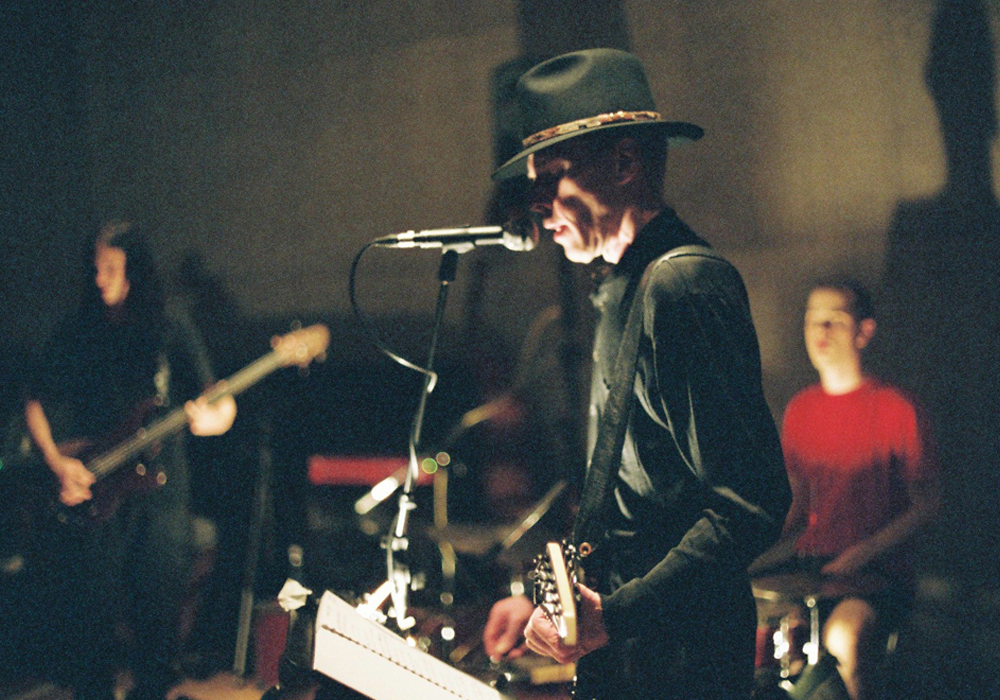
Tetsuya Umeda
Tetsuya Umeda
Umeda is a Japanese artist who is as fascinated in setting up interesting situations to observe, as he is in creating performances.
Arika have been creating events since 2001. The Archive is space to share the documentation of our work, over 600 events from the past 20 years. Browse the archive by event, artists and collections, explore using theme pairs, or use the index for a comprehensive overview.

Umeda is a Japanese artist who is as fascinated in setting up interesting situations to observe, as he is in creating performances.
Discussion with David Keenan: an author, critic and musician based in Glasgow, Scotland. He is best known for the reviews and features he has contributed to The Wire.

A changing pool of people (40 or so at a time – artists, audiences, etc) talk for 90 minutes in a simultaneous series of open-ended round-table discussions, structured like speed dating, and mixed live as both a concert and for radio broadcast.

Politicised fan-fiction chronicling working class gay urban space and fantasy.

Thinking against the monoculturalism of Western thought—of faith, affection, sexuality and gender—which completely lacks any utility to, or descriptive value of Indigenous worldviews.

Relative patterns of occlusion and exposure occupy two screens. Each exposure fires a stroboscopic flash of colour: yellow for one screen; blue for the other, filling the centre of both screens with colour, haloed with after-images.

A fulcrum to the Japanese noise scene, JOJO Hiroshige has been responsible for much of the explosion of free music coming from Japan in the last 30 years.

Paul Sharits is one of our all time heroes, and one of the great artist filmmakers of the 20th Century.

Investigate film as language, via the language of film reduced to the basic units of film and language. A film as text in which each frame is a single word.

Performances at Anthology Film Archives by by Loren Mazzacane Connors, Alan Licht & Jandek.

Chris Corsano, Akio Suzuki and John Butcher performing in the Hamilton Mausoleum, Hamilton.

There are core ways in which our listening to the radio differs from other kinds of listening. What happens when we pay attention to how we pay attention?